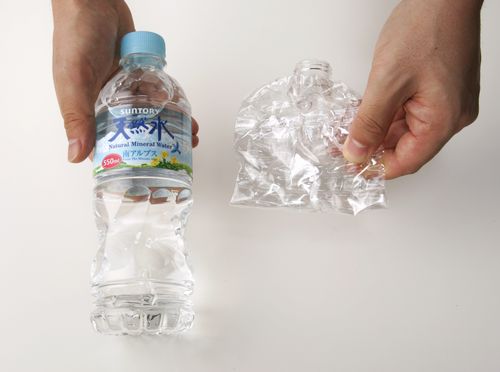The country plans to achieve this without implementing a deposit system, although restrictions on exporting plastic waste to China and other Asian countries present their own challenges.
December 13, 2018

Consumers and corporations in Japan already cooperate to collect 92.2% of the PET bottles used in Japan (in fiscal 2017) without a deposit system and recycle 84.8% of the recovered material according to the latest data from The Council for PET Bottle Recycling. The target is to ensure that 100% of the PET bottles that are collected are recycled by fiscal 2030. Japan’s current recycling rate already compares favorably with those of Europe (41.8%) and the US (20.1%).
Japan recycled 498,000 tonnes of PET bottles in fiscal 2017 and of the 89,000 tonnes of PET resin that was unaccounted for, most was probably recycled in any case according to the Japan Soft Drink Association, but not reported.
|
Japanese beverage suppliers such as Suntory are working to reduce PET bottle weight as well as make mineral water bottles easy to crush, and thus collect for recycling. [Photo: Suntory’s Beverage and Food Limited] |
In fiscal 2017, 61,300 tonnes of PET bottle resin was recycled back into bottles and the aim is to increase this quantity moving forward and reduce the dependence on down-cycling to fiber, sheet and other molded applications. In fact, increasing the quantity of PET recycled domestically will be critical as China and other Asian countries restrict legislate plastic waste imports.
Japan traditionally exported a significant quantity of PET bottles and flakes to China and other countries for recycling and reprocessing—390,000 tonnes in 2017. China alone imported almost 316,000 tonnes of PET waste (bottles and flakes) from Japan in 2017 but this looks like declining to less than 21,000 tonnes this year. This decline in China imports has been partially alleviated by exports to ASEAN countries and Taiwan. ASEAN imports this year, for example, are up more than five-fold and could exceed 160,000 tonnes for the entire year. Since Japanese PET flakes recycled from PET bottle are colorless and clean, some Asian countries prefer to import them.
Based on current trends, Japan will probably require an additional 90,000 tonnes/year of PET recycling capacity to be installed domestically. The country will also need to develop more end-use markets for the recycled PET flakes. Even more domestic capability may be required if other Asian nations tighten up their restrictions on plastic waste imports as looks increasingly likely. Japan is seeing increased investment in recycling capacity in-country, including by Chinese companies.
China’s polyester fiber industry requires around 8 million tonnes of recycled PET flakes annually for the production of staple fiber, which is now severely lacking. The fiber industry is pushing for a relaxation in restrictions on the import of PET waste and industry observers think that such a rethink could come around May 2019, which would once again transform the situation. Japan also recommends the thermal recycling route for energy recovery where dirty PET bottles might restrict the efficiency of material recycling.
The industry also has concrete targets for reducing bottle weight over a broad spectrum of bottle types. Average bottle weight has been reduced by 23.9% between 2014 and 2017. Fiscal 2020 targets have already been achieved for 500-ml and 1,500-ml hot-fill bottles, which at 25.5 g and 49.1 g, respectively, are 7.4% and 8.8% lighter than they were in 2004. The target has also been achieved for 500-ml aseptic bottles, which now weight on average 19 g versus 25.2 g in fiscal 2004.
About the Author(s)
You May Also Like





